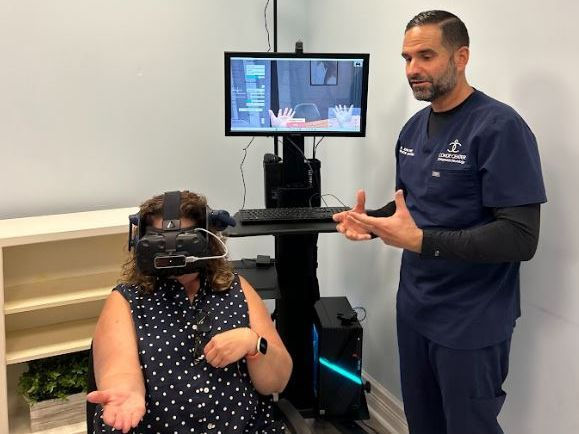Top 10 Neurological Symptoms You Shouldn’t Ignore
- Functional Neurology Brain Center Of Florida
- 6 days ago
- 3 min read
Updated: 4 days ago
Your brain is the command center of your body, controlling everything from how you think and feel to how you move and sense the world. So when something feels off neurologically, even a subtle signal, it is important not to ignore it. Recognizing early warning signs can empower you to act quickly and protect your brain health.

In this article, we will explore the top 10 neurological symptoms you should not ignore, share why they matter, and guide you on what to do. Ready? Let us dive in.
Sudden Severe “Thunderclap” Headaches
A headache that reaches full intensity within seconds or that you call "the worst headache of my life" is not just discomfort. It may signal something serious such as a brain bleed, aneurysm, or meningitis. These headaches require immediate medical evaluation.
Numbness Tingling or Limb Weakness
That pins and needles feeling or a sudden loss of strength in your arm or leg can be a red flag, possibly for a stroke, multiple sclerosis, or peripheral nerve issues. Do not wait for it to pass, especially if it affects one side or comes with other symptoms.
Vision Changes or Sudden Vision Loss
Blurred vision, double vision, sudden blindness in one eye, or seeing spots and patterns may indicate serious neurological conditions such as optic neuritis, stroke, or a brain tumor. Get it checked before it becomes more than just eye trouble.
Confusion Cognitive Decline or Memory Loss
Occasional forgetfulness is normal. But persistent confusion, getting lost in familiar places, repeated questions, or problems following conversations can indicate early dementia, stroke, or other neurological challenges.
Speech or Swallowing Difficulties
Slurred speech, stuttering where none existed before, or difficulty swallowing (dysphagia) could be early signs of a stroke, multiple sclerosis, or other serious conditions. These symptoms should prompt evaluation by a neurologist quickly.
Sudden Loss of Balance or Coordination
Frequent stumbling, unsteadiness, or trouble walking in a straight line may hint at cerebellar issues, multiple sclerosis, or vestibular dysfunction. Even if mild, do not dismiss them. Early intervention matters.
Tremors or Involuntary Movements
Uncontrolled shaking, jerky movements, or muscle spasms may indicate Parkinson’s disease, essential tremor, or functional neurological disorders. Track when and how they occur, and consult a specialist.
Seizures or Blackouts
Even a single seizure or a momentary blackout is a sign you need immediate medical attention. Possible causes range from epilepsy to metabolic imbalances to brain injury.
Loss of Consciousness or Rapid Head Injuries
If you lose consciousness even briefly or experience a head injury followed by confusion, persistent headaches, or vomiting, treat it seriously. These may indicate concussion or worse.
Subtle “Mini Stroke” or TIA Symptoms
Transient Ischemic Attacks, often called mini strokes, may involve fleeting weakness, facial droop, slurred speech, or imbalance. Despite their temporary nature, they strongly predict a future stroke if ignored. Use the BE FAST acronym Balance, Eyes, Face, Arms, Speech, Time and call emergency services at the first sign.
Why Early Detection Matters
Your nervous system does not lie, it communicates. Early detection can prevent irreversible damage, especially in strokes and TIAs. It can help diagnose conditions like multiple sclerosis or early dementia when treatments are most effective. And it can guide you toward rehabilitative therapies or lifestyle changes that improve quality of life.

What to Do If You Notice a Red Flag Symptom
First, document details by noting when symptoms started, how they evolved, what made them better or worse, and any associated signs.
Second, seek medical evaluation with your primary care provider or a neurologist depending on urgency. Life threatening symptoms such as stroke or seizure warrant immediate emergency attention.
Third, follow up with a neurologist. A functional neurology specialist can help assess, guide treatments, and recommend emerging technologies to support recovery and brain health.
Finally, explore personalized care. At the Functional Neurology Brain Center of Florida, our emerging technologies offer advanced tools for evaluating and treating neurological conditions. If you are curious about how functional neurology works, check out our insight on What is Functional Neurology? to understand our holistic and patient centered approach.
Final Thoughts
When it comes to your brain, trust the signals even subtle ones. From sudden confusion to unexplained balance issues, these top 10 warning signs are your body’s way of saying “Pay attention.” You do not have to face them alone. Early detection, expert insight, and tools tailored just for you can make all the difference.
Stay informed. Stay alert. And if your brain is asking for help, we are here to listen.


Comments